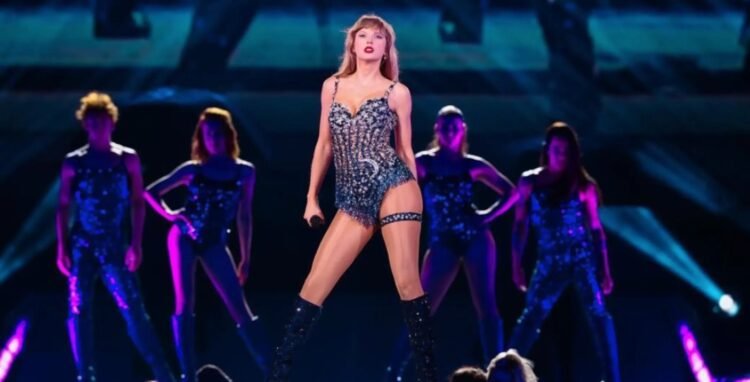Taylor Swift’s immense popularity has sparked countless trends, but her influence recently extended into the realm of climate activism. Among the thousands of fans attending her Canadian performances, one stood out: 15-year-old Avery Parisien, who earned her Eras Tour tickets by participating in climate protests.
The Ontario teen’s journey began with a contest organized by advocacy groups Decolonial Solidarity, Change Course, and Stand.Earth. Dubbed Unite the Swifties, the campaign incentivized fans to take action against RBC, the “Official Ticket Access Partner” of Swift’s tour and one of the world’s largest financiers of fossil fuel companies.
Participants could enter the sweepstakes simply by registering, but taking additional actions—like signing petitions, emailing RBC’s CEO, or organizing protests—earned them more entries. Parisien went all in, completing training modules, distributing flyers, and even creating a PowerPoint presentation about RBC’s fossil fuel investments.
Using Pop Culture to Drive Change
This unconventional approach blended activism with pop culture to reach new audiences. While campaigns have previously used celebrity appeal, this effort went further, incorporating gamification to mobilize action.
“It’s something that will stick with me for the rest of my life,” said Parisien, who participated alongside her mother.
The campaign’s goals extended beyond the ticket giveaway, aiming to educate participants on RBC’s role in funding projects like the Coastal GasLink pipeline, which crosses Wet’suwet’en Nation territory.
A Fresh Approach to Activism
Experts are intrigued by the campaign’s innovative tactics. Emily Huddart, a sociology professor at UBC, noted that such gamified methods might help counteract declining youth engagement in protests.
“Activists have to compete for attention in a hyper-distracted world,” said Huddart. “This approach celebrates effort, even if incentivized.”
Aliénor Rougeot, a prominent climate activist, highlighted how campaigns like Unite the Swifties can make activism more accessible and joyful. “It speaks to a new audience that doesn’t see themselves in traditional environmentalism,” she said.
Mixed Reactions and Lingering Questions
While RBC dismissed the campaign as a small group of activists attempting to disrupt the concert experience, organizers countered that RBC’s sponsorship of Swift’s tour is a form of “art washing,” using cultural events to distract from their environmental record.
Despite the skepticism, the campaign’s early results are promising. Organizers reported that over 9,000 participants collectively completed more than 100,000 actions, with many new to climate activism.
For Parisien, the campaign was transformative. “No matter who you are, you have a voice,” she said. “And you can use it.”
The success of Unite the Swifties demonstrates the potential of blending cultural passion with social causes, raising important questions about the future of activism and the creative ways it can engage the next generation.

 English
English




























































